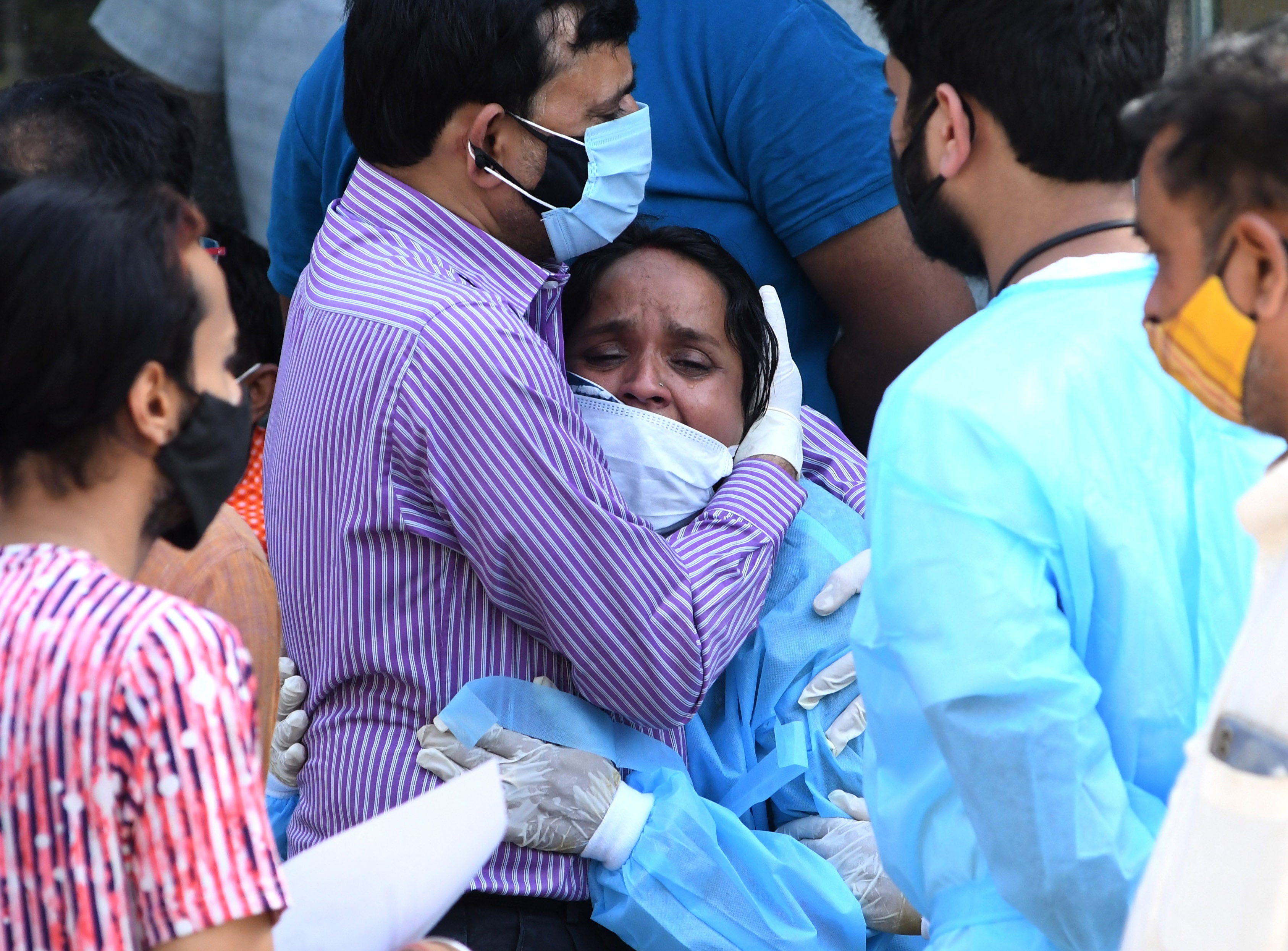India endures deadliest day of year with 1,700 Covid deaths as vaccine offered to all adults from May
Jabs will be given to at least 400 million more people next month

Your support helps us to tell the story
From reproductive rights to climate change to Big Tech, The Independent is on the ground when the story is developing. Whether it's investigating the financials of Elon Musk's pro-Trump PAC or producing our latest documentary, 'The A Word', which shines a light on the American women fighting for reproductive rights, we know how important it is to parse out the facts from the messaging.
At such a critical moment in US history, we need reporters on the ground. Your donation allows us to keep sending journalists to speak to both sides of the story.
The Independent is trusted by Americans across the entire political spectrum. And unlike many other quality news outlets, we choose not to lock Americans out of our reporting and analysis with paywalls. We believe quality journalism should be available to everyone, paid for by those who can afford it.
Your support makes all the difference.India witnessed its deadliest day of the year on Monday as it recorded 1,761 Covid-19 deaths and added another 259,000 infections with the healthcare system struggling to cope with the pressure.
The intensifying second wave has pushed the country’s tally of total cases past 15.3 million infections, further straining the system as people compete for hospital beds, oxygen, ambulances and medicines.
Amid the soaring numbers, the Indian government expanded its vaccination drive by opening it to anyone above the age of 18 from 1 May. The central government also allowed the states to acquire vaccines directly from the manufacturers after several states suffered shortages and the jabs rollout slowed down.
Monday was the sixth straight day that India recorded over 200,000 cases. The highest daily active cases were recorded on Sunday with 273,810 new infections.
More Indian states are facing new lockdown restrictions to break the chain of transmission. The national capital, Delhi, which reported 23,686 fresh coronavirus and the highest deaths (240), has gone under a six-day lockdown beginning on Tuesday to relieve the pressure on the health infrastructure.
Twitter in India has become a source for people to make desperate attempts for help as they struggle to find beds, oxygen and medicines. Several people posted queries and pleaded for help for their friends and family members.
Journalists, activists and those from opposition political parties have come together to help people in distress.
"[A] monumental tragedy of epic proportions is unfolding across India. No hospital beds, no oxygen, no vaccination," said Manish Tewari, an opposition Congress party lawmaker, on Twitter.
Photographs from the Indian states of Delhi, Maharashtra, Gujarat and Uttar Pradesh showed bodies piling up in crematoriums and graveyards, ambulances waiting outside hospitals with patients and people wailing for their dead loved ones.
India has seen 180,530 people succumbing to the infection but observers and experts have claimed the official death toll does not reflect reality and the number of deaths could be much higher.
The health minister stated that the Indian states of Maharashtra, Uttar Pradesh, Delhi and Rajasthan are among the 10 states that contributed to 78 per cent of daily infections. While Tamil Nadu, Karnataka, Gujarat, Kerala, Madhya Pradesh and Chhattisgarh are also showing a steep rise.
Even as the numbers are increasing, a huge number of people can be seen crowding at railway stations and bus stations in Delhi to leave for their homes after Arvind Kejriwal, chief minister of Delhi, announced the lockdown. The scenes were similar to the large-scale exodus of migrant labourers last year when the Indian prime minister, Narendra Modi, imposed an abrupt lockdown.
The government has opened more oxygen plants and redirected its supplies to the states facing the worst shortage, banning oxygen supply to industries which are not related to healthcare, with the exception of some critical industries.
Opposition party leader Rahul Gandhi is the latest to test positive for coronavirus, after former prime minister Manmohan Singh. Mr Kejriwal has also self-quarantined after his wife tested positive on Tuesday.
India has more than two million active cases as of Tuesday and more than 12 million people vaccinated across the country.
Join our commenting forum
Join thought-provoking conversations, follow other Independent readers and see their replies
0Comments